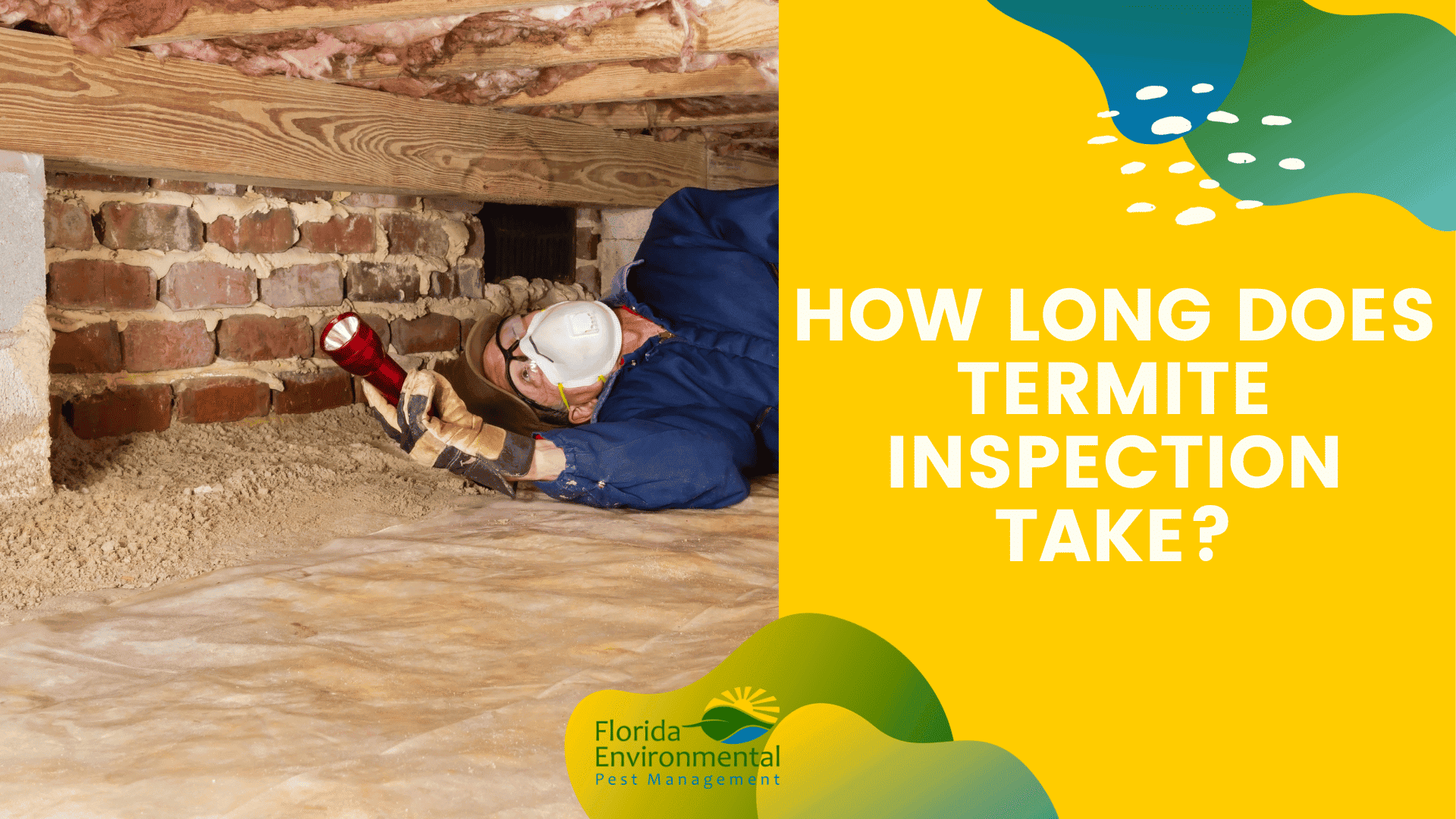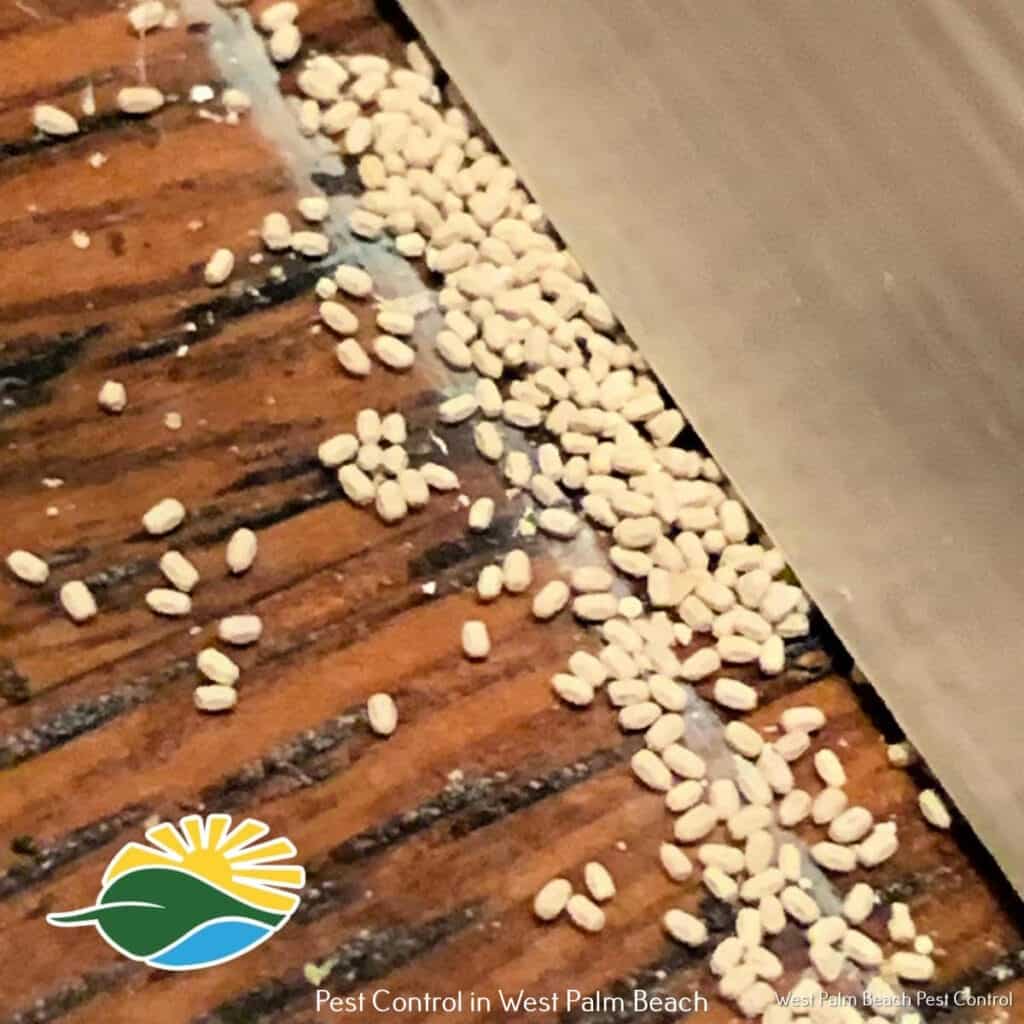Termites, those tiny yet destructive creatures, have a voracious appetite for wood and other cellulose-based materials. Left unchecked, they can wreak havoc on the physical stability of your home, causing damage that may cost you a fortune to repair.
That’s why as a homeowner, it is essential to understand the importance of employing termite inspection experts to protect your property and ensure its longevity. If you’re new to termite infestation, one question that is most likely in your mind is “How long does termite inspection take?” Well, that and more will be answered in this post.
How long does termite inspection take?
On average, a termite inspection can take anywhere from a few hours to a full day. During a termite inspection, the inspector will conduct a thorough examination of both the interior and exterior of the property.
They will meticulously inspect vital areas where termites are commonly found, such as the foundation, walls, roof, windows, doors, and wooden structures. The goal is to identify any signs of termite activity, such as mud tubes, damaged wood, or discarded wings.
To aid in the inspection process, inspectors may use specialized tools and equipment. These tools can include moisture meters to detect areas with high moisture content, as termites are attracted to damp environments. Thermal imaging cameras can also be used to identify temperature variations that may indicate termite activity within the walls or other concealed areas of the property.
The thoroughness of the inspection is necessary to ensure accurate detection of termite activity or damage. The inspector will carefully assess each area, documenting their findings and providing insights into the extent of any infestation present.
Factors affecting the duration of termite inspection
Here are some important factors that determine how long termite inspection might take.
1. Size and condition of the property
The size and condition of the property play a significant role in determining the duration of a termite inspection. Larger properties typically require more time to inspect thoroughly due to the increased number of areas that need to be covered.
Also, if the property has extensive damage or multiple structures, such as additional buildings or detached garages, the inspection process may take longer. Inspectors need to carefully assess each area for any signs of termite activity or damage, ensuring a comprehensive evaluation of the entire property.
2. Accessibility
The accessibility of different areas within the property can impact the time required for a termite inspection. Some areas, such as crawlspaces, attics, or tight corners, may be challenging to access, requiring additional effort and time for the inspector to reach and examine them properly.
If there are obstacles or limited access points, it may slow down the inspection process as the inspector needs to navigate through these areas to inspect for termite activity.
3. Type of construction
The type of construction of the property can influence the duration of a termite inspection. Different construction styles, such as slab or raised foundations, may require different inspection techniques and approaches.
For example, inspecting a property with a slab foundation may involve assessing potential termite entry points around plumbing pipes or expansion joints, while inspecting a property with a raised foundation may require inspecting crawl spaces or subfloor areas. The complexity of the construction style can impact the time needed to conduct a thorough inspection.
4. Severity of infestation
The severity of a termite infestation can affect the duration of an inspection. If there are visible signs of termite activity, such as mud tubes, damaged wood, or swarmers (winged termites), the inspector may need to allocate more time to thoroughly investigate the extent of the infestation.
This involves identifying the affected areas, assessing the damage caused, and determining the appropriate treatment strategy. In severe infestations, the inspector may need to inspect additional areas beyond the typical scope to ensure that all termite activity is identified.
Can termites come back after treatment?
While termite treatments can be highly effective in eradicating termite infestations, it’s important to understand that they do not guarantee 100% elimination of all termites. Termites are resilient pests that can adapt and find new pathways into your property, even after treatment.
Termite treatments typically target the existing termite colonies and aim to eliminate them. This can be achieved through various methods, such as soil treatments, baiting systems, or localized spot treatments. These treatments work by either repelling or killing termites, disrupting their colonies, or intercepting their foraging activities.
However, termites can come back after treatment for a few reasons. Firstly, treatment methods may not reach all areas of the property, especially hidden or hard-to-reach spaces. Termites may find untreated areas and continue their destructive activities. Additionally, if neighboring properties have termite issues and are not appropriately treated, there is a chance that termites may migrate back into your property.
This is why ongoing termite prevention measures are crucial. Even after treatment, it is essential to implement preventive strategies to minimize the risk of re-infestation. Regular termite inspections conducted by professionals can help detect any signs of termite activity early on, allowing for prompt action to be taken. By identifying and addressing potential vulnerabilities or conducive conditions for termite infestation, you can significantly reduce the likelihood of termites returning.
Furthermore, routine maintenance of your property plays a vital role in preventing termite re-infestation. This includes keeping vegetation trimmed and away from the structure, maintaining proper drainage to minimize moisture accumulation, and promptly repairing any leaks or cracks in the foundation or walls.
Do I need an annual termite inspection?
Yes, regular termite inspections are an important preventive measure for homeowners, even if there are no visible signs of termites. These inspections serve as a proactive approach to detect early signs of infestation and prevent potentially costly damage to your property.
Termites are notorious for their ability to remain hidden and carry out their destructive activities undetected. By the time visible signs of termite infestation become apparent, significant damage may already be present. That’s why annual termite inspections are highly recommended.
During an annual inspection, a trained termite professional will thoroughly assess your property for any signs of termite activity or damage. They have the expertise to identify subtle indicators that may go unnoticed by untrained eyes. Early detection is key, as it allows for prompt treatment and intervention before the termites can cause extensive harm to your home.
Even if you have not experienced any previous termite issues, an annual inspection provides an added layer of protection and peace of mind. It serves as a proactive measure to detect any potential vulnerabilities or conditions that may attract termites. By addressing these factors early on, you can implement preventive measures to minimize the risk of future infestations.
Keep in mind that termites can cause significant damage to the structure of your home, leading to costly repairs. Therefore, investing in regular termite inspections is a proactive step towards protecting your most valuable asset. The cost of an annual inspection is minimal compared to the potential expenses associated with termite damage.
Final Thoughts
The duration of a termite inspection can vary depending on factors like property size, condition, accessibility, and the severity of the infestation. While termite treatments are effective, they may not eliminate all termites, which is why ongoing prevention measures are essential.
So, don’t wait for visible signs of termites! Schedule regular termite inspections with Florida Environmental Pest Management to detect any early signs of infestation and prevent costly damage. Staying proactive and taking preventive measures can enable you to protect your home and enjoy lasting peace of mind. Reach out today to schedule your termite inspection and keep your home safe!





